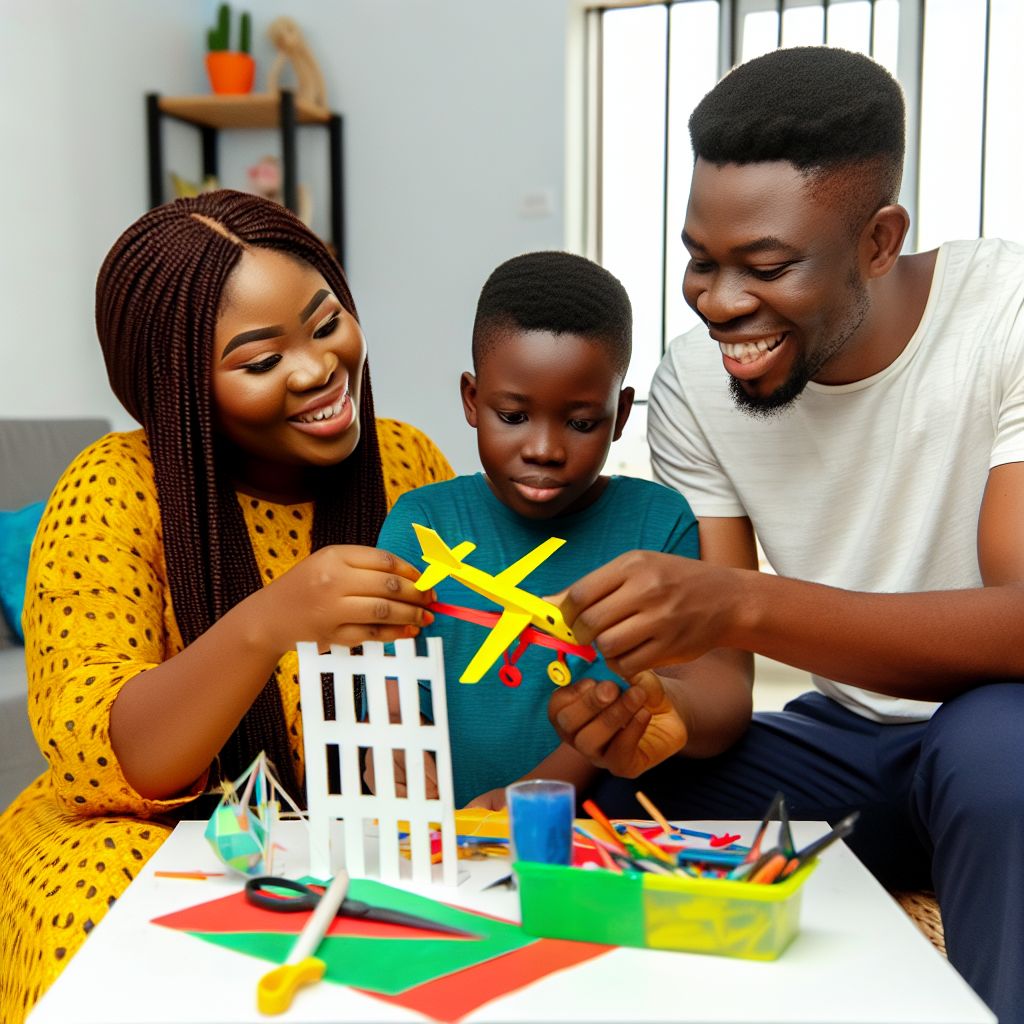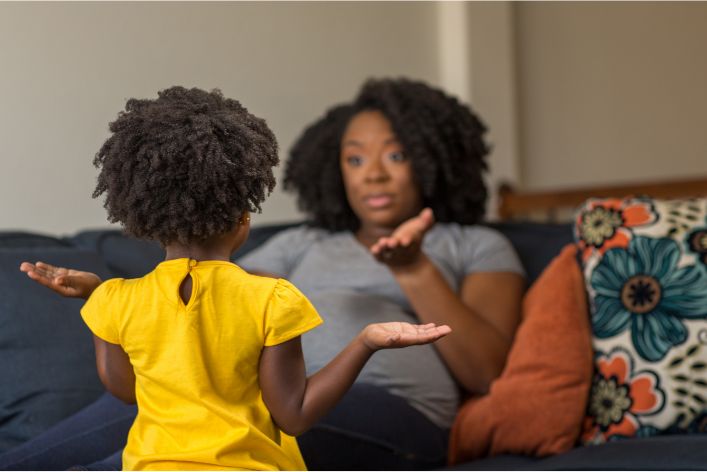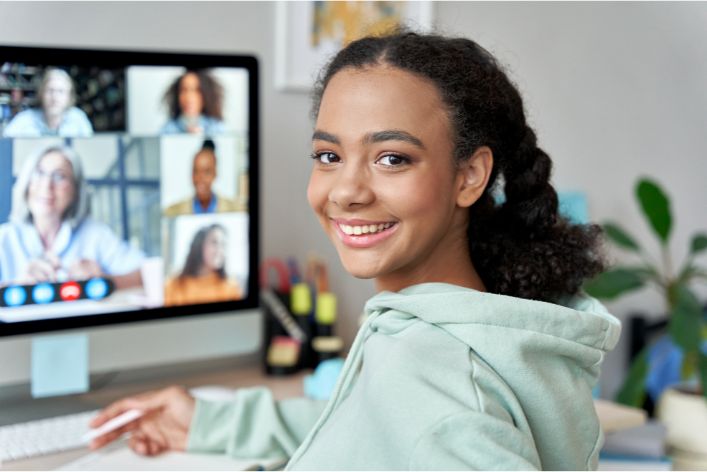Understanding the Importance of Creativity and Problem-Solving Skills in Child Development
Enhancing Cognitive Growth
Creativity stimulates a child's cognitive development effectively.
It encourages flexible thinking and adaptability in various situations.
Moreover, problem-solving skills sharpen logical reasoning and decision-making.
Together, these skills improve learning outcomes and mental agility.
Preparing Children for Future Challenges
The world demands innovative thinkers and problem solvers.
Children who develop these skills early handle challenges better.
Additionally, they become confident in overcoming obstacles independently.
As a result, they succeed academically and professionally later in life.
Fostering Emotional and Social Development
Creativity also supports emotional expression and self-awareness.
It helps children understand and manage their feelings effectively.
Likewise, problem-solving promotes teamwork and communication skills.
Therefore, children build strong relationships and social competence.
Encouraging Lifelong Learning Habits
Creative and problem-solving skills inspire curiosity and exploration.
Children develop a love for learning through active engagement.
Furthermore, these skills promote resilience and a growth mindset.
Parenting Made Just for You
Get personalized Parenting Solutions tailored to your child’s needs. Transform your parenting journey with expert guidance in 1-3 days.
Get StartedConsequently, children remain motivated to acquire new knowledge continuously.
Creating a Supportive Home Environment That Nurtures Curiosity and Experimentation
Encouraging Open Communication
Parents should create spaces where children freely express their ideas and questions.
For example, Mrs. Adeola often invites her children to share their thoughts during family discussions.
Such openness boosts their confidence to explore new concepts and solve problems.
Moreover, encouraging questions helps children develop critical thinking skills early.
Providing Resources for Exploration
Supplying materials like books, art supplies, and science kits can spark creativity.
Mr. Emeka sets up a dedicated corner with puzzles and building blocks for his kids.
These tools motivate experimentation and learning through play.
Additionally, parents should rotate resources to keep the environment stimulating.
Allowing Safe Experimentation and Mistakes
Children learn best when they try new things without fear of harsh criticism.
Mrs. Funke encourages her daughter to test different cooking recipes, celebrating efforts.
This approach teaches resilience and problem-solving through trial and error.
Thus, parents must emphasize learning from mistakes rather than focusing on perfection.
Modeling Creative and Problem-Solving Behaviors
Parents should demonstrate curiosity and inventive thinking in everyday situations.
Unveil the Perfect Name that Tells Your Family's Story
Let us help you find a name that embodies your family's values, traditions, and dreams. Our personalized consultation weaves cultural insights to create a name that's uniquely yours.
Get StartedFor instance, Mr. Okoro involves his children when fixing household items creatively.
Children imitate such behaviors and apply similar strategies to their challenges.
Therefore, active parental involvement strengthens the home’s creative culture.
Creating Routine Opportunities for Experimentation
Establishing regular activities like weekend science experiments fosters curiosity consistently.
Mrs. Nneka organizes family crafting sessions, inspiring imaginative skill development.
These predictable opportunities make learning fun and habitual.
Consequently, children become proactive problem solvers over time.
Recognizing and Celebrating Efforts
Praising attempts encourages children to take intellectual risks without hesitation.
Mr. Chukwu always acknowledges his son’s creative solutions to school projects.
Positive reinforcement builds motivation to continue exploring ideas bravely.
Hence, celebrating progress nurtures sustained curiosity and experimentation.
Incorporating Culturally Relevant Storytelling and Traditional Games to Stimulate Imagination
Power of Storytelling in Nigerian Culture
Storytelling has long been a cherished tradition in Nigerian families.
Parents like Mrs. Eze use folk tales to spark children's creativity.
These narratives encourage imagination and foster critical thinking skills.
Moreover, storytelling preserves cultural heritage while teaching valuable lessons.
Therefore, integrating stories about figures like Sundiata or Mami Wata enriches children's understanding.
Continually sharing these stories creates opportunities for children to ask questions and explore ideas.
Engaging Children Through Traditional Games
Traditional games like Ayo or Ludo help develop problem-solving abilities.
For instance, Mr. Okoye often plays Ayo with his son to sharpen his strategic thinking.
These activities require focus and planning, strengthening cognitive skills.
Furthermore, traditional games encourage social interaction and healthy competition.
Families can also invent variations to keep the games exciting and challenging.
Combining Storytelling with Play to Enhance Learning
Parents can intertwine stories and games to create immersive learning experiences.
For example, enacting tales during playtime deepens children's engagement.
This approach nurtures creativity while reinforcing problem-solving in real scenarios.
Additionally, it fosters stronger bonds between parents and children.
By consistently applying these methods, Nigerian parents build imaginative and resilient minds.
Learn More: Balancing Discipline and Freedom in Modern Nigerian Households
Encouraging Children to Ask Questions and Explore Multiple Solutions
Fostering a Curious Mindset
Nigerian parents can nurture creativity by encouraging children to ask questions daily.
Children develop critical thinking when they feel safe to voice their curiosity.
In fact, parents like Mr. Tunde Alabi have seen great progress using this method.
Parents should actively listen to their children’s questions without immediate judgment.
This openness motivates children to explore topics deeply and confidently.
Promoting Exploration of Multiple Solutions
It is important to teach children that most problems have more than one solution.
For example, Mrs. Chiamaka Nwosu guides her children to brainstorm different ways to complete tasks.
Parents can present everyday problems and ask, “How else can we solve this?”
This process helps children weigh options and consider creativity in problem-solving.
Additionally, it prepares them for real-life challenges with flexible thinking.
Practical Strategies Parents Can Use
Parents can create playful scenarios that require children to solve puzzles or challenges.
Moreover, involving children in household decisions encourages them to explore alternatives.
Using storytelling prompts children to imagine different story endings or solutions.
Encouraging group discussions at home helps children hear diverse viewpoints.
Usman and Nkechi Musa often hold family brainstorming sessions that inspire inventive ideas.
Supporting Problem-Solving with Encouragement
Praise children not only for correct answers but also for creative attempts.
Recognize effort over perfection to build resilience and willingness to try again.
Parents should avoid giving immediate solutions; instead, guide children gently to find answers.
This empowers children to take ownership of their learning and problem-solving process.
Ultimately, it strengthens their confidence and independence in facing challenges.
Discover More: How to Foster Independence in Nigerian Kids While Staying Supportive
Providing Opportunities for Hands-On Activities
Encouraging Artistic Expression Through Arts and Crafts
Nigerian parents can foster creativity by introducing children to arts and crafts.
Regularly setting up painting sessions stimulates imagination.
They can also set up drawing sessions for increased creativity.
Crafting sessions offer children a chance to learn new skills.
Moreover, involving children in making traditional Nigerian decorations enhances cultural pride.
Parents should provide diverse materials like beads for varied experiences.
Fabric can also be included to allow different types of crafts.
Clay offers a tactile and creative outlet for children.
These activities develop fine motor skills and boost self-confidence.
Promoting Scientific Curiosity With Practical Experiments
Hands-on science projects inspire problem-solving and critical thinking skills.
Simple experiments using household items allow children to explore cause and effect.
For instance, growing beans in different conditions teaches observation skills.
This activity also helps children develop patience.
Parents can encourage children to ask questions during these projects.
They should also motivate children to hypothesize about outcomes.
Additionally, visiting local science centers enriches their understanding.
Science workshops offer another practical learning opportunity.
Integrating Playful Learning in Everyday Life
Children learn better when they engage physically and mentally at the same time.
Games that require building or designing develop planning skills.
These games also improve spatial reasoning abilities.
For example, assembling models challenges children to think creatively.
Puzzles provide a fun way to enhance problem-solving skills.
Parents can join their children in these activities to motivate and guide them.
This involvement strengthens family bonds over time.
It also nurtures problem-solving mindsets in children.
Learn More: Practical Communication Strategies for Strengthening Parent-Child Bonds
Limiting Screen Time and Promoting Outdoor Play to Enhance Creative Thinking
Impact of Excessive Screen Time on Creativity
Excessive screen time restricts children's imaginative abilities.
It often leads to passive consumption rather than active creation.
Moreover, too much screen exposure reduces opportunities for problem-solving.
Consequently, many children find fewer chances to think critically or explore new ideas.
Therefore, Nigerian parents should monitor and limit daily screen usage carefully.
Benefits of Outdoor Play for Creative Development
Outdoor play encourages children to interact with diverse environments.
It stimulates their senses and sparks curiosity.
Additionally, nature provides numerous challenges that foster inventive thinking.
Children develop important problem-solving skills when exploring outside.
Furthermore, playing with peers outdoors enhances social creativity and collaboration.
Practical Ways to Balance Screen Time and Outdoor Activities
Establish clear daily limits on screen usage for children.
Communicate these boundaries kindly but firmly to your kids.
Encourage outdoor family activities like walking or gardening together.
Create a safe and stimulating outdoor play area at home, if possible.
Provide materials such as art supplies or building blocks to extend creativity outdoors.
Arrange regular visits to parks, farms, or cultural festivals within your community.
Encouraging Creative Play through Outdoor Games and Exploration
- Introduce traditional Nigerian games that require strategy and imagination.
- Examples include ayo, damaru, and akara oyinbo games.
- Offer opportunities for children to invent their own rules and variations.
- Support unstructured playtime that allows free exploration and discovery.
- By doing so, children learn to solve problems in diverse and creative ways.
Uncover the Details: Empowering Nigerian Parents: Modern Techniques for Raising Independent Kids

Collaborating with Schools and Community Programs to Reinforce Creative Learning
Building Strong Partnerships with Schools
Nigerian parents can actively engage with teachers to support creative learning at school.
They should attend parent-teacher meetings regularly to discuss their child’s progress.
Moreover, parents can volunteer for school events that encourage creative activities.
For instance, participating in science fairs or art exhibitions boosts children’s enthusiasm.
Parents like Mrs. Olawale have successfully organized after-school clubs focused on innovation.
These initiatives help bridge home and school environments effectively.
Utilizing Community Programs for Skill Development
Local community centers often offer workshops enhancing creativity and problem-solving.
Parents should explore programs led by experts such as Funmi Ajayi’s Creative Minds Hub.
These programs provide hands-on experiences in robotics, coding, and entrepreneurship.
Additionally, they create safe spaces for children to experiment and fail confidently.
Through consistent participation, children develop resilience alongside creative skills.
Encouraging Collaborative Projects
Parents can encourage children to join group projects both at school and in communities.
Group activities promote sharing ideas and diverse ways of thinking.
For example, collaborating on community garden projects teaches planning and teamwork.
Ms. Emeka often facilitates such projects that combine creativity with social impact.
These experiences strengthen problem-solving abilities and social confidence simultaneously.
Leveraging Technology Partnerships
Schools and community groups sometimes partner with tech companies for learning opportunities.
Parents should seek programs like Lagos Code Initiative supporting youth coding clubs.
Involvement in technology-driven projects expands children’s digital creativity.
Furthermore, it prepares them for future workplaces requiring innovative thinking.
These partnerships also inspire children to consider STEM careers early on.
Promoting Continuous Communication and Feedback
Regular communication between parents, teachers, and program leaders is essential.
Parents should request updates on their child’s participation and growth in creative tasks.
Consequently, they can reinforce positive habits and address challenges promptly.
Mr. Adeyemi frequently holds informal chats with facilitators to track his daughter’s progress.
This proactive engagement supports sustained development of creative and problem-solving skills.
Modeling Creative Problem-Solving Behaviors Through Parental Examples and Discussions
Demonstrating Creative Approaches in Everyday Life
Nigerian parents can inspire creativity by showing how they solve problems daily.
For instance, Adeola uses household items creatively to fix broken appliances.
She explains her thought process to her children, encouraging curiosity and innovation.
Moreover, Mr. Chima involves his children when planning family activities to include their ideas.
This participation helps children see problem-solving as a practical and enjoyable skill.
Engaging in Open Discussions About Challenges
Parents should talk openly about the challenges they face and the solutions they attempt.
Fatimah shares her experience balancing work and family, inviting her son to suggest ideas.
These discussions build critical thinking by showing that multiple solutions can exist.
Additionally, encouraging children to ask questions promotes a habit of thoughtful inquiry.
Tosin often asks her daughter, “How would you solve this?” to spark creative thinking.
Applying Collaborative Problem-Solving Techniques
Family collaboration reinforces that creative solutions often stem from teamwork.
The Okoye family holds weekly meetings to discuss challenges and brainstorm solutions together.
Such engagements allow children to witness diverse perspectives and develop teamwork skills.
Furthermore, parents guide children to evaluate the pros and cons of different ideas.
This process teaches decision-making and nurtures problem-solving confidence.
Fostering Reflection and Adaptability in Problem Solving
Parents should reflect aloud on the success or failure of their solutions.
Samuel explains how trying multiple approaches helped him solve garden issues effectively.
He teaches his children that failure is part of learning and encourages problem-solving persistence.
By being adaptable, children learn to adjust their strategies when facing new challenges.
Modeling these behaviors creates an empowering environment for creative growth.
Recognizing and Rewarding Efforts and Innovative Ideas to Build Confidence
Importance of Acknowledging Creativity
Parents should actively recognize their children's creative efforts.
This acknowledgment motivates children to explore new ideas.
Moreover, it builds a strong foundation for their confidence.
When creativity is appreciated, children feel valued and encouraged.
Thus, positive reinforcement becomes essential in nurturing problem-solving skills.
Ways to Reward Innovative Ideas
Parents can use verbal praise to highlight their child's unique solutions.
Additionally, small tokens or certificates can celebrate innovative accomplishments.
Sometimes, dedicating time to discuss a child's idea shows genuine interest.
Families may also create a creativity board at home to display achievements.
This visual reinforcement reminds children that their ideas matter greatly.
Creating a Supportive Environment for Experimentation
Encouraging trial and error allows children to improve their problem-solving skills.
Parents should emphasize that mistakes are part of learning.
Consistent support helps children gain resilience amidst challenges.
Parents like Mrs. Adeola often share stories of inventors who succeeded after many failures.
Such examples inspire children to persist with their creative pursuits.
Encouraging Open Communication About Ideas
Engaging children in conversations about their projects promotes deeper thinking.
Parents can ask open-ended questions to stimulate reflection and analysis.
For instance, Mr. Adekunle asks his daughter how she approached a challenging task.
This practice helps children articulate their thought processes clearly.
Consequently, children become more confident in presenting their innovative concepts.
Benefits of Building Confidence Through Recognition
Confident children are more willing to take intellectual risks.
They develop persistence when faced with complex problems.
Furthermore, positive recognition strengthens their intrinsic motivation.
Ultimately, this approach prepares children for future academic and professional success.
Parents play a crucial role in fostering creativity by celebrating effort regularly.
Utilizing Local Resources and Materials to Inspire Resourcefulness and Innovation
Encouraging Creativity Through Everyday Items
Nigerian parents can spark creativity by using everyday materials found at home.
For example, recycled items like paper, plastic bottles, and fabric scraps offer rich opportunities.
These materials encourage children to imagine new uses and designs.
Moreover, involving children in repurposing encourages problem-solving through hands-on experience.
Parents can create simple art or craft projects using these local resources.
This approach builds resourcefulness while minimizing costs and waste.
Exploring Natural Materials and Traditional Crafts
Natural resources such as palm leaves, wood, and clay connect children with Nigerian culture.
Parents can guide children in exploring traditional crafts like weaving, pottery, and carving.
Such activities enhance manual skills and innovative thinking simultaneously.
Also, these crafts inspire pride in cultural heritage and motivate creative expression.
Local artisans and community centers can provide valuable learning experiences.
Therefore, parents should seek out workshops or mentorship opportunities nearby.
Creating Learning Opportunities with Local Entrepreneurs
Local markets and businesses showcase inventive uses of everyday resources.
Parents can encourage visits to craft markets to expose children to entrepreneurial creativity.
Children observe how vendors solve problems using limited materials.
Furthermore, parents can arrange meetings with local innovators to inspire their children.
This interaction helps children understand creativity’s practical importance.
As a result, children develop confidence in thinking innovatively and solving real-life problems.
Establishing a Creative Space at Home Using Local Materials
Designating a spot at home filled with local materials encourages daily creative play.
Parents should stock this space with simple tools like scissors, glue, and colors.
This environment invites experimentation without fear of making mistakes.
Additionally, parents can join in to model creative behavior and problem-solving.
Regularly refreshing available materials keeps the space engaging and inspiring.
In this way, innovation becomes a natural part of children's routines.
Additional Resources
Python for Kids: A Starter Guide for Nigerian Parents
Social Media’s Negative Effects on Kids: A Platform or Parenting …




